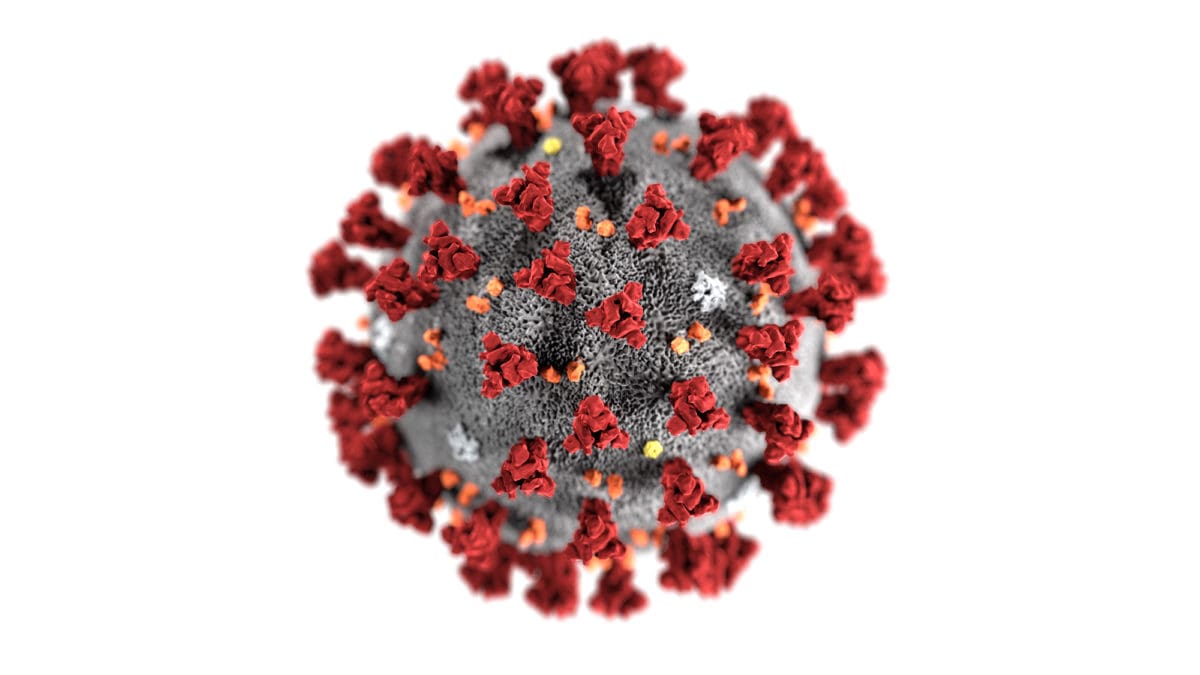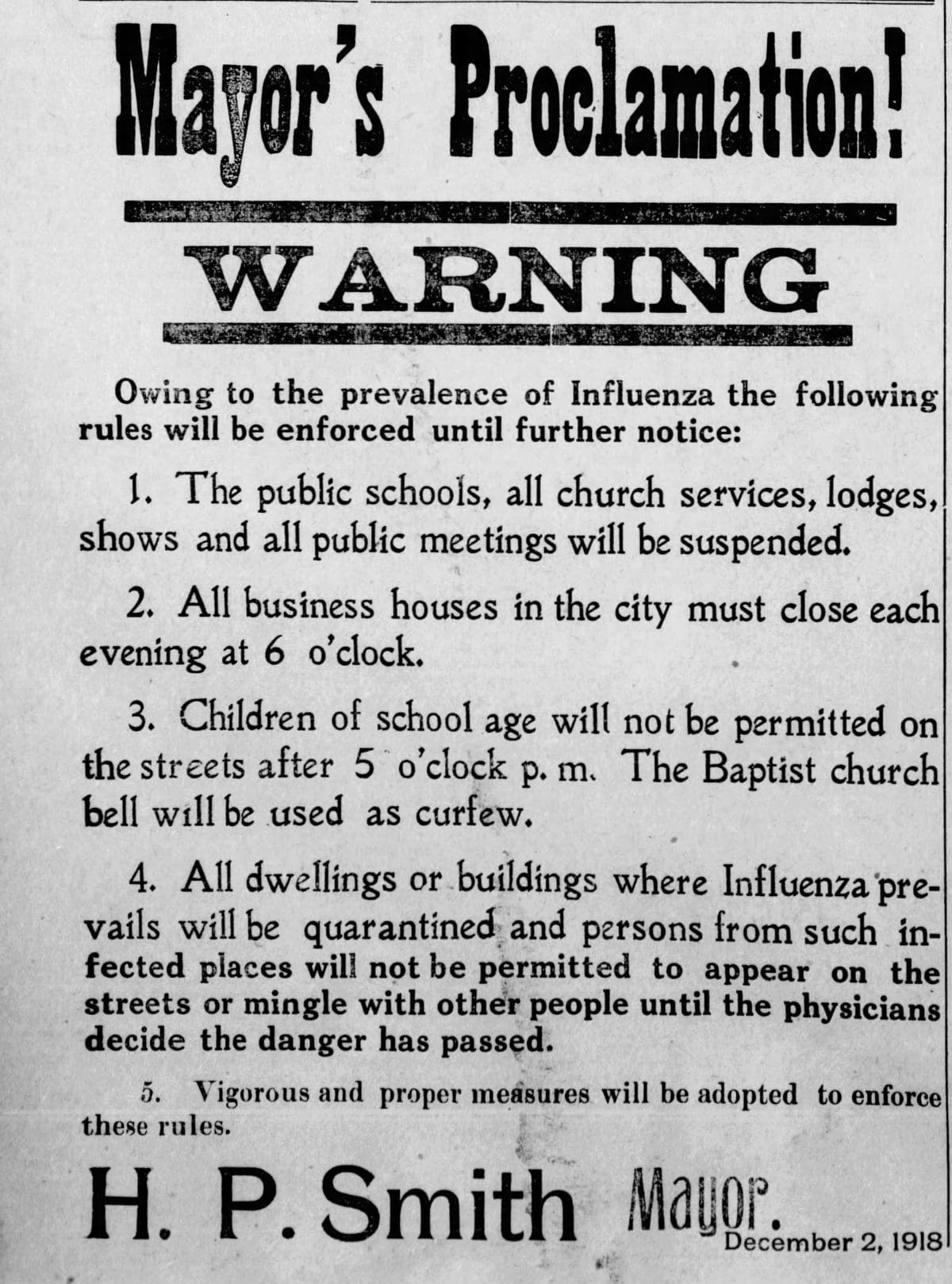In a widely criticized essay on current state imposed social distancing, First Things editor R.R. Reno said the following about social reaction to the 1918 Spanish Flu epidemic:
More than one hundred years ago, Americans were struck by a terrible flu pandemic that affected the entire world. Their reaction was vastly different from ours. They continued to worship, go to musical performances, clash on football fields, and gather with friends.
After insisting that Americans of 1918 understood methods of quarantine, Reno suggests they just didn’t care.
Unlike us, however, that generation did not want to live under Satan’s rule, not even for a season. They insisted that man was made for life, not death. They bowed their head before the storm of disease and endured its punishing blows, but they otherwise stood firm and continued to work, worship, and play, insisting that fear of death would not govern their societies or their lives.
Although surely some churches worshiped, some games were played and some gatherings were held, these paragraphs and the contrast between now and then is grossly inaccurate. It is so irresponsibly misleading that Reno and First Things should retract the piece or at the least issue a public correction.
The Spanish Flu Pandemic
The Spanish Flu pandemic claimed 50+million lives world-wide in 1918. It was highly contagious and was particularly hard on young people. It is well documented that Philadelphia was particularly hard hit because city leaders did not quarantine their citizens whereas other towns around the country (e.g., St; Louis, Columbus) did so and experienced a much lower death rate.
However, is Reno correct that outside of those famous cases, life went on as normal? Did citizens bow their heads “before the storm of disease?” The definitive book on the pandemic is John Barry’s The Great Influenza, but it is relatively easy to find evidence that Reno is wrong on all counts. Below is some of that evidence.
Worship
Today some churches are meeting. Would Reno say that we are bowing our heads against the storm of disease? Obviously not, his problem is that are cancellations at all.
In 1918, church services were canceled in cities large and small due to the virus. For instance, Evanston, IL closed just about everything in October, 1918 in response to a growing number of flu cases.
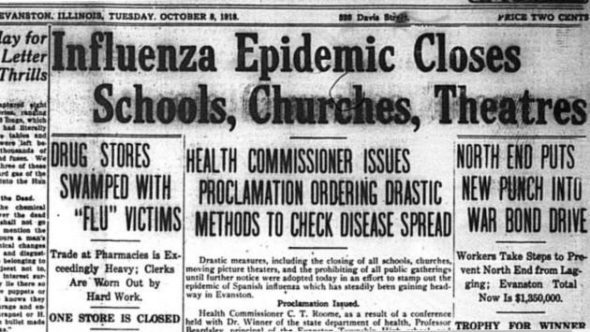 Little Urich, MO closed everything including churches during the second wave of the epidemic.
Little Urich, MO closed everything including churches during the second wave of the epidemic.
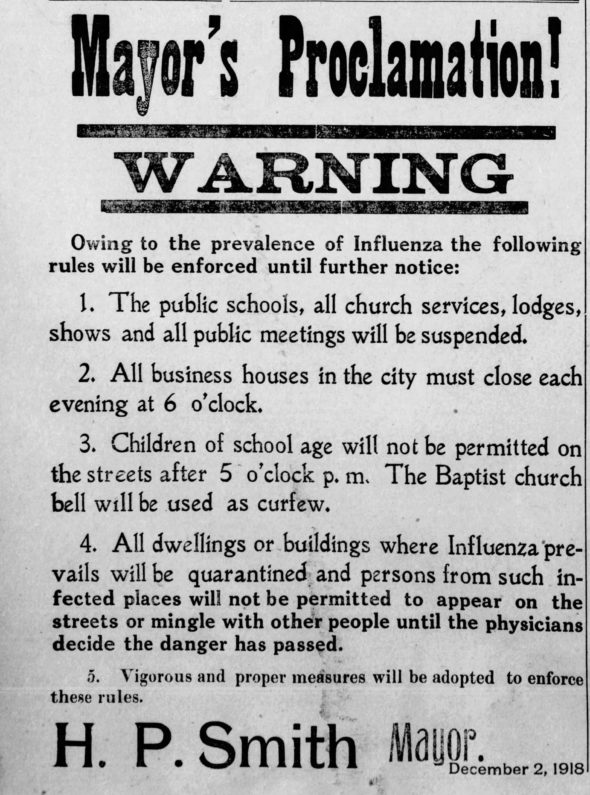 In Columbus, OH, a minister’s council advised churches to close in response to the orders from the State Board of Health.
In Columbus, OH, a minister’s council advised churches to close in response to the orders from the State Board of Health.
On Oct. 11, 1918, the State Board of Health ordered all theaters, schools and churches closed and banned public funerals.
The Columbus Citizen reported that “Columbus Ministerial Council has requested of all churches that they close doors and not debate whether or not the order applies.”
From Nashville, to Dallas, to Worcester churches closed even though some pastors didn’t like it.
Football
Reno is also wrong about football. There was no professional football league yet. In fact, one can make a case that the flu pandemic delayed the development of a professional league until 1920. There was interest in forming a league and people played professionally, but games were postponed due to the flu. For instance, this article in the October 15, 1918 edition of the Akron Evening Times shows that pro football had to be put aside for awhile.
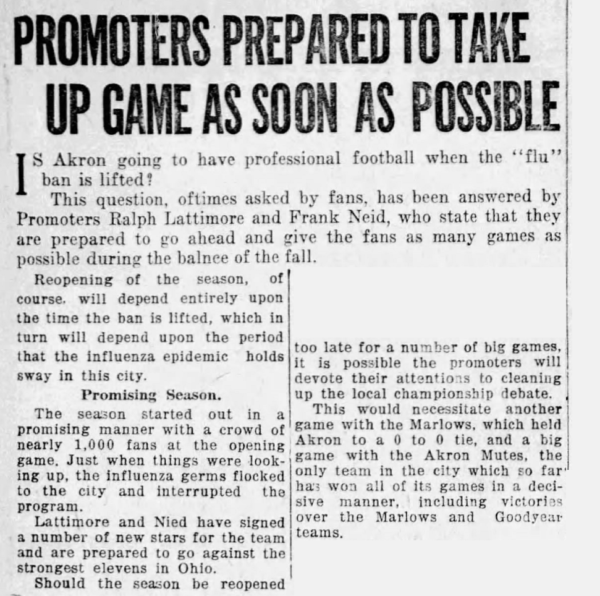 High school and college football also suffered due to bans on crowds and playing in games. Far fewer college games were played (704 in 1917 v. 394 in 1918) on account of WWI and the Spanish flu pandemic). While it is true that the season was not completely canceled, it is not true that the people of the time plugged on as if death and illness was inevitable. A sports columnist from the Baltimore Sun lamented the impact of the flu on the gridiron.
High school and college football also suffered due to bans on crowds and playing in games. Far fewer college games were played (704 in 1917 v. 394 in 1918) on account of WWI and the Spanish flu pandemic). While it is true that the season was not completely canceled, it is not true that the people of the time plugged on as if death and illness was inevitable. A sports columnist from the Baltimore Sun lamented the impact of the flu on the gridiron.
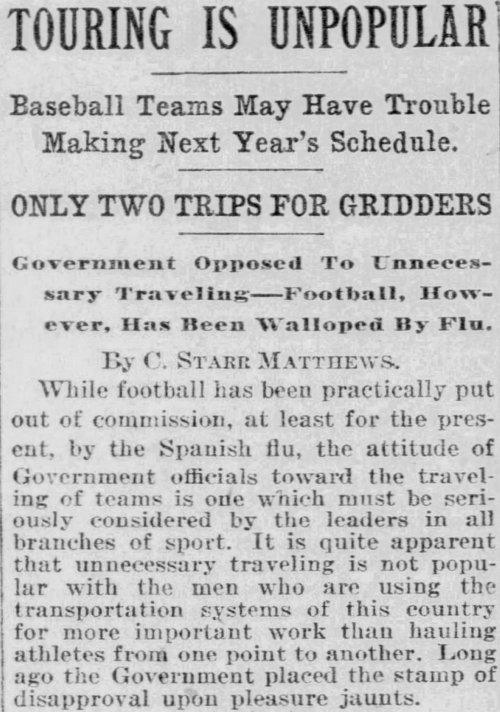 High school games were also canceled due to the quarantine as in Wichita, KS.
High school games were also canceled due to the quarantine as in Wichita, KS.
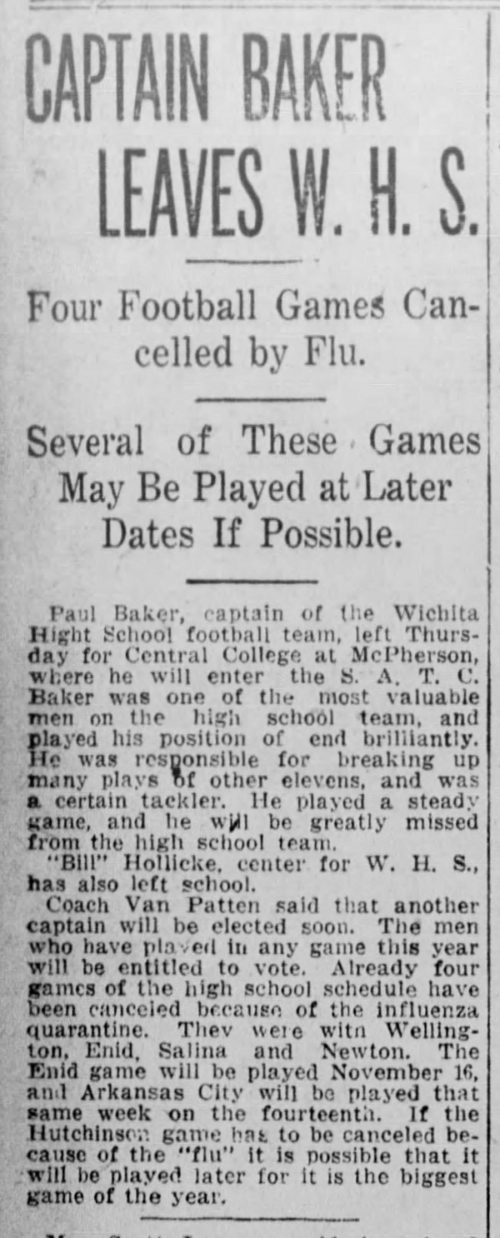 Social Distancing
Social Distancing
I hope it is apparent that the people of 1918 are a lot like the people of 202o. Some now don’t see the need to socially distance and some then didn’t either. However, that doesn’t mean the people of 1918 didn’t do so. Just a few more examples should demonstrate how Reno’s history is so far off.
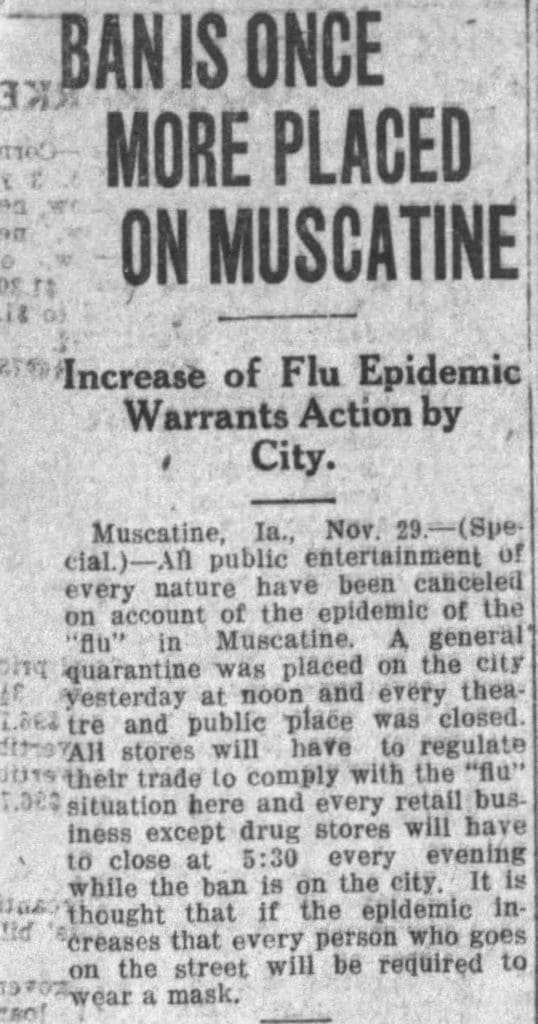
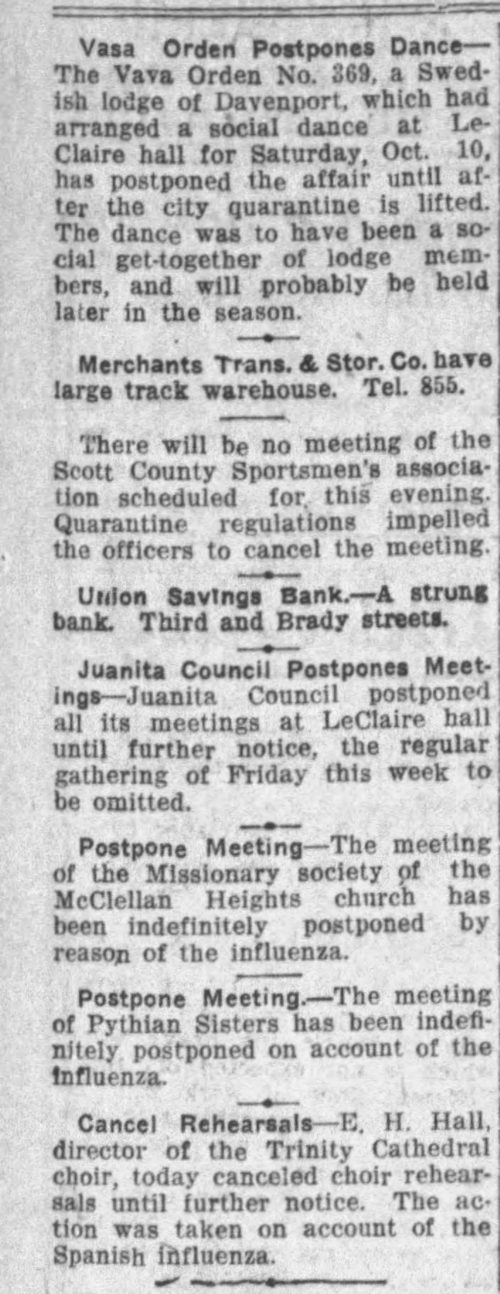 All over the nation, social gatherings, churches, sporting events, etc. were canceled. Health officials took their responsibilities seriously and issued warnings and orders, just like now, and hoped their fellow citizens would have the good sense to do what was right. Just like now.
All over the nation, social gatherings, churches, sporting events, etc. were canceled. Health officials took their responsibilities seriously and issued warnings and orders, just like now, and hoped their fellow citizens would have the good sense to do what was right. Just like now.
Reno and First Things have abused their platform in a very significant way. Of course, Reno is entitled to his view of life and death. However, using faulty history is beneath First Things and it should be corrected.
Additional information:
Many other cities closed schools, churches, and various social gatherings during the pandemic. For reference, I am going to list links to additional resources describing contradictions to Reno’s claims.
Minneapolis-St. Paul closed schools, churches, and businesses off and on throughout the pandemic.
Also in MN, Bemidji’s mayor ordered all public gatherings, including churches, to close during October of 1918.
Los Angeles shut down schools, churches, and other public gatherings for seven weeks.
Winston-Salem, NC shut down schools, churches, and theaters in October, 1918.
Tacoma and Pullyup, WA closed public gatherings from early October through November.
Nebraska’s state government ordered the closure of “schools, churches, places of entertainment, and public gatherings” in early October.
Other cities that closed down various public meetings spaces include: Houston, Chicago, Aspen CO, Baltimore.
The House and Senate closed their public galleries during October 1918.
